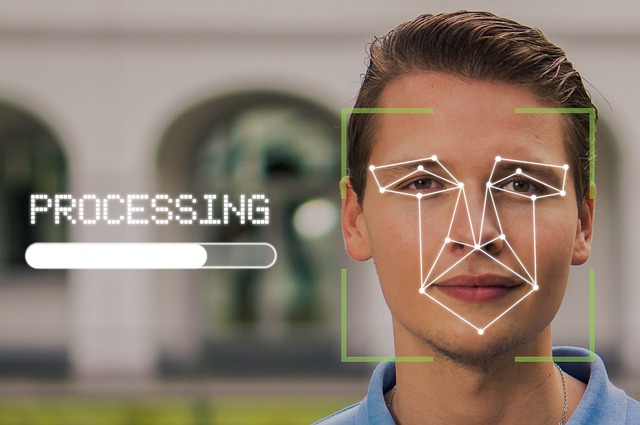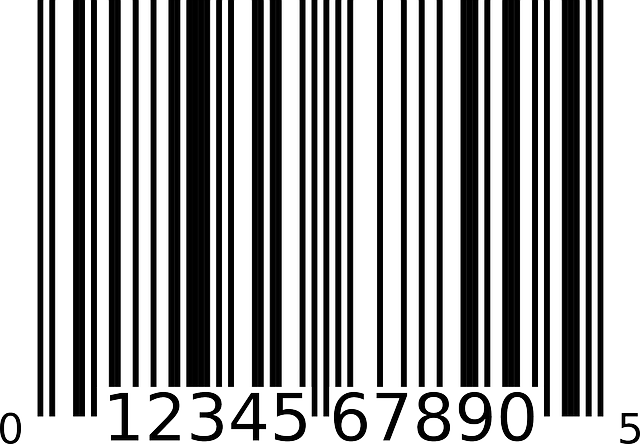When buying a used car, it's vital to perform a comprehensive VIN check to understand the vehicle's history, including past ownership, accident records, title brandings, maintenance logs, and recall notices. This step is critical as it reveals the car's safety, reliability, and market value, ensuring that potential buyers make an informed decision. A VIN lookup provides detailed information on the car's condition and service history, helping to avoid hidden issues like odometer tampering or undisclosed damage. It also confirms if previous repairs were made correctly and if recalls have been addressed, which are essential for ensuring the vehicle is safe and mechanically sound. Utilizing specialized services to decode the VIN offers a transparent view of what you're purchasing, enabling you to make a reliable and hassle-free used car decision.
Embarking on the journey of buying a used car can navigate through uncertainty, resembling a high-stakes game where the cards dealt may either unveil a well-maintained gem or conceal a hidden time bomb. In this landscape, VIN validation and Vehicle Identification Number (VIN) verification serve as your trusty compasses, offering a window into a vehicle’s history through a car history check. This critical tool illuminates data on prior accidents, ownership changes, and recall notices, arming you with the knowledge to make an informed decision. Indeed, ignoring this step could lead to unforeseen complications, as evidenced by recent findings from Carfax, which highlight that about 40% of used cars harbor undisclosed damage records. Hence, before finalizing any purchase, ensure you conduct a thorough VIN lookup—your due diligence to unlock the vehicle’s narrative and secure your investment.
- Decoding a Used Car's History with VIN Validation
- The Risks of Buying Without VIN Verification
- Unveiling the Truth: What a Car History Check Reveals
- Understanding Past Ownership and Accident Records
- Recalls and Recertification: A VIN's Warning Signals
- Strategies for Safe Used Car Shopping with VIN Insights
Decoding a Used Car's History with VIN Validation

When considering the purchase of a used car, the vehicle’s history can be as important as its current condition. A VIN validation is an indispensable step in understanding what a car has been through, offering a comprehensive account that goes beyond a visual inspection. This unique identifier, the Vehicle Identification Number, serves as a key to unlocking a wealth of information about the vehicle’s past. It can reveal critical data such as previous accidents, repair history, title brandings, and service records. Such insights are crucial for prospective buyers, as they can influence the car’s value and safety. For instance, a car that has been involved in significant collisions might have structural compromises not immediately apparent. A VIN lookup will flag such incidents, enabling you to make an informed decision. Further, it checks for odometer rollbacks, which can distort the true condition of the vehicle, and confirms the authenticity of the car’s history. By leveraging a comprehensive car history check, buyers can uncover hidden issues that could affect their safety, the reliability of the vehicle, and its long-term value. Services like Carfax report that a significant portion of used cars for sale conceal damage history, emphasizing the importance of this due diligence step before finalizing any purchase. With a VIN verification, you’re not just buying a car; you’re investing in a reliable mode of transportation and peace of mind.
The Risks of Buying Without VIN Verification

Navigating the used car market requires due diligence to avoid potential pitfalls. One critical step in this process is verifying a vehicle’s history through its Vehicle Identification Number, or VIN. Without this verification, buyers are at significant risk. A car with a hidden past can harbor issues that affect safety and reliability, such as frame damage from accidents, flood damage, or odometer tampering. These problems might not be immediately visible during a cursory inspection but can significantly devalue the vehicle or pose safety hazards down the line. Moreover, undisclosed prior ownership history could reveal patterns of neglect or irresponsible maintenance, which might not become apparent until after the purchase. VIN verification serves as a safeguard, offering transparency on the car’s background, including accident history, title branding, and service records. It empowers buyers to make informed decisions, ensuring they are not inadvertently purchasing a vehicle that could turn into an expensive and unsatisfactory experience.
Unveiling the Truth: What a Car History Check Reveals

When considering the purchase of a used car, a vehicle’s history is as important as its current condition. A car history check initiated by entering a VIN (Vehicle Identification Number) into a specialized database offers a comprehensive overview of the vehicle’s past. This report typically includes details such as previous owners, service and maintenance records, accident history, title branding, and any recall notices that have been issued for the vehicle. Such information is crucial for potential buyers as it can reveal whether the car has been involved in accidents that might affect its safety and performance. Moreover, it can uncover if the vehicle has undergone significant repairs or has had multiple owners, all of which can influence its value and reliability. With this data at hand, car buyers can approach a used car purchase with greater confidence, armed with knowledge that helps them assess the true condition of the vehicle and make an informed decision. It’s a critical step in the car-buying process, one that can save buyers from unforeseen issues down the line and ensure they are investing in a reliable mode of transportation.
Understanding Past Ownership and Accident Records

When considering the purchase of a used car, understanding the vehicle’s past ownership and accident records is paramount. Past owners can significantly influence a car’s condition and value; a conscientious owner might have maintained the vehicle with great care, while a neglectful one could have caused long-term issues that may not be immediately apparent. A comprehensive VIN lookup can reveal the history of ownership, allowing potential buyers to assess whether the vehicle has been well cared for over its lifetime. This information is crucial as it can affect everything from the car’s reliability and safety to its resale value.
Moreover, a detailed accident record is another critical aspect that should not be overlooked. Accidents can compromise a car’s structural integrity and safety features, potentially leading to future mechanical problems or increased insurance premiums. A history of accidents, particularly those that were not properly repaired, can mean costly repairs down the line. With a VIN verification, you can access records that detail any reported accidents, the extent of the damage, and whether the vehicle was repaired correctly. This transparency is invaluable, as it ensures that buyers are fully informed about the condition of the car before making a commitment. Understanding both past ownership and accident history through VIN validation is essential for anyone looking to make an informed decision when buying a used car.
Recalls and Recertification: A VIN's Warning Signals

When considering a used car, recalls and recertification status are critical pieces of information that can significantly impact your purchase decision. A vehicle’s VIN can reveal if it has been subject to any safety recalls issued by the manufacturer. These recalls are often prompted by defects or safety issues that could compromise the integrity and safety of the car. It’s imperative to check whether such recalls have been addressed in the past, as the previous owner might not have resolved these issues, potentially leaving you with a vehicle that may not perform safely without the necessary repairs.
Furthermore, recertification can serve as a beacon of trustworthiness for a used car. A recertified vehicle has undergone rigorous inspection and often refurbishment to meet certain standards set by the manufacturer or an independent certifying organization. This process typically includes a comprehensive check of the vehicle’s condition, ensuring that it meets specific criteria before being stamped with a certificate of approval. By examining the VIN, you can verify if a car has been recertified and what specific checks it has passed. This due diligence provides reassurance that the car you are considering has been evaluated for its mechanical and safety integrity, offering peace of mind as you navigate the used car market.
Strategies for Safe Used Car Shopping with VIN Insights

When navigating the used car market, a vehicle’s history can significantly impact its reliability and value. Prospective buyers must approach each potential purchase with diligence and informed decision-making. A key strategy in this process is to conduct a thorough VIN (Vehicle Identification Number) check. This crucial step allows you to access a comprehensive report detailing the car’s history, including any past accidents, repair records, title information, and odometer readings. Such insights are vital, as they can reveal whether the car has been involved in significant collisions or if it has undergone salvage title repairs, which could compromise its safety and longevity. Additionally, a VIN check can uncover if the vehicle has been reported stolen or has outstanding recalls that need to be addressed. By leveraging these details, you can assess the car’s condition more accurately and determine whether it aligns with your expectations and needs.
Furthermore, utilizing reputable platforms and services that specialize in VIN decoding can enhance your shopping experience. These platforms often provide easy-to-understand reports that consolidate complex data into actionable information. For instance, they might highlight if a car has had multiple owners or has been frequently involved in accidents, which could affect its resale value and reliability. Armed with this knowledge, you can negotiate more effectively, knowing the true condition of the vehicle, and ultimately make a purchase that brings peace of mind rather than potential headaches down the line. Remember to cross-reference information from different sources when possible, ensuring that the VIN you’re checking corresponds accurately to the car in question. With these strategies in place, you can transform what might have been a gamble into a well-informed decision, significantly increasing your chances of finding a reliable used car.
When venturing into the used car market, arming yourself with knowledge is paramount. A vehicle’s history, often invisible to the untrained eye, can significantly impact its safety and value. By leveraging VIN validation and a thorough car history check, you demystify the car’s past, safeguarding your investment from potential pitfalls. The insights gleaned from these checks are invaluable, offering peace of mind and ensuring that what appears to be a hidden gem doesn’t turn into a time bomb down the line. Remember, a few minutes spent on VIN verification can prevent a myriad of future issues. Thus, for any prospective used car buyer, this knowledge is not just beneficial—it’s an essential step in the process.



